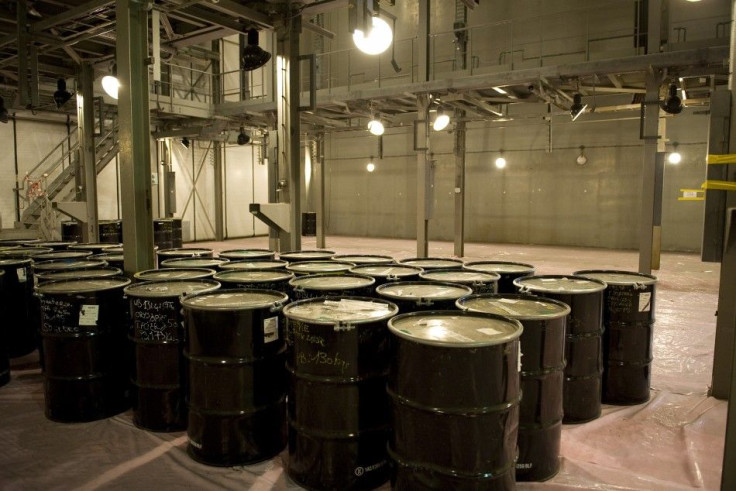France Nuclear Explosion: Will Sarkozy Eat His Words?

After an explosion at a Nuclear power plant in France on Monday, President Nicholas Sarkozy has remained mum.
The blast at 11:45 Monday was triggered by a fire near a metal-melting furnace in a waste treatment room at the facility. One person was killed in the explosion and another four were injured.
Initial reports were cautious, implying that there was risk of radiation leaks outside the plant, which is only 30 miles from the city of Nimes. However, authorities are now certain that there is no leak risk and that none of the Marcoule workers have been exposed to radiation.
President Sarkozy is perhaps the world's biggest political proponent of nuclear energy, and he has repeatedly insisted that France's plants are the safest, most modern on Earth
Indeed, there are more than 20 operating nuclear plants with 58 reactors in France, and the country gets 78.8 percent of its electricity from nuclear power, the most of any country in the world.
Contrary to most European countries, France has recently reinvested in nuclear energy. After the Fukushima disaster in Japan in March, which was the largest nuclear accident since the 1986 Chernobyl disaster, countries like Germany, Switzerland and Italy voted to discontinue their nuclear programs.
But in June, France's President Nicolas Sarkozy said he was committing one billion euros (about $1.36 billion) to nuclear power.
There is no alternative to nuclear energy today, Sarkozy told a news conference at the time. We are going to devote a billion euros to the nuclear program of the future, particularly fourth-generation technology.
We are also going to release substantial resources from the big loan to strengthen research in the sphere of nuclear safety, he added.
All of France's plants recently underwent an intensive inspection to see if they could safely withstand natural disasters or other accidents. The inspection was ordered by the European Union after Fukushima, and all of the 143 nuclear reactors among its member states have undergone the same tests. The results of the inspections are due later this month.
After the explosion Monday, some French politicians called for Marcoule to be shut indefinitely.
I think we need to decide as soon as possible to consider the shutdown of the site in the 'cleanest' way possible, Sandrine Belier, a Green MEP for the East France region, told EurActiv.
Électricité de France, the utilities company that owns the plant, said Monday that the explosion should be considered an industrial accident, not a nuclear accident, and it likely qualifies as a Level 1 incident on the International Nuclear Event Scale.
The International Nuclear Event Scale is a tiered warning system ranging from zero to seven, with seven being the most severe. The Fukushima meltdown was one of two Level 7 accidents every, the other being Chernobyl.
Level 1 indicates a situation with minor problems with safety components with significant defence-in-depth remaining.
Worth noting, the last incident at a nuclear plant in France was also a level 1 anomaly. It occurred at the Gravelines facility in August 2009, when the nuclear rods jammed, causing a system failure and a reactor to shut down.
EDF's safety measures were criticized in 2008, but the company asserts that it was made significant improvements since.
Marcoule is operated by SOCODEI, a waste solutions subsidiary of Électricité de France. EDF is the largest utility company in the world, and it produces 22 percent of the electricity for the European Union, about 75 percent of which comes from nuclear power.
Électricité de France also partners with a number of companies in the United States, including Unistar Nuclear Energy, EnXco and Constellation Energy, which owns three nuclear power stations on the East Coast.
© Copyright IBTimes 2025. All rights reserved.





















